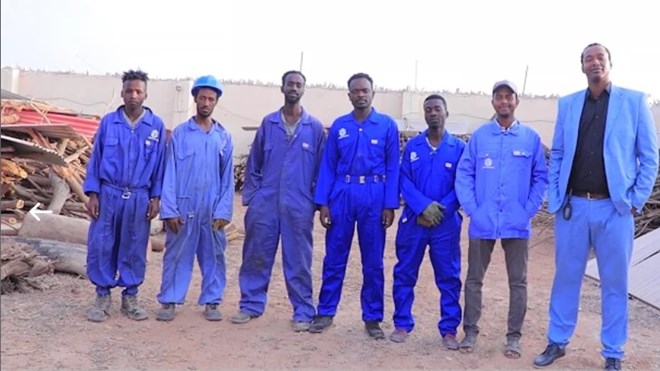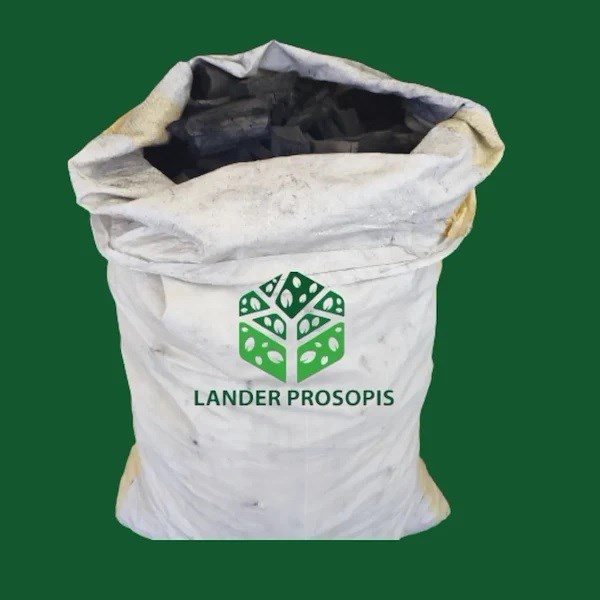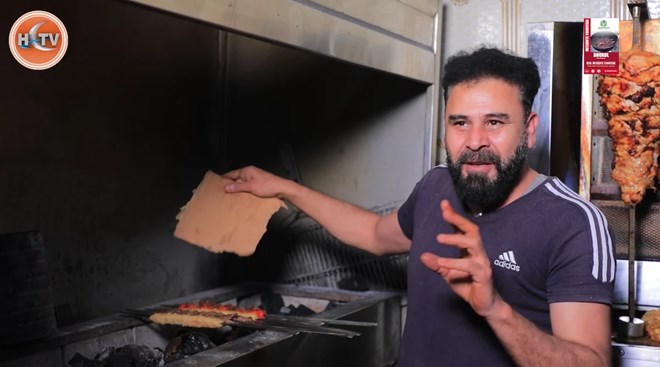
Tuesday April 4, 2023
By Kamal Raj Sigdel, with input from Abdul Qadir and Hassan Abdirizak Ahmed
 Photo Courtesy/ Horn Cable TV
Photo Courtesy/ Horn Cable TV
For Guuleed Ahmed, 35, an innovator from Hargeisa, there are solutions to every problem. His passion for the environment and his community has led to a promising solution that is transforming the way people cook and heat their homes. His innovative business, Lander Prosopis, is producing sustainable and affordable charcoal from an invasive tree species that has been causing havoc to rangelands and farms in the region.
Ahmed's solution, one of the winners of UNDP’s innovation challenge award - has not only saved trees from being cut down but also reduced the production cost of charcoal by 30%, making it more affordable for the poorest who need the fuel to heat homes and cook. The award is part of the PROSCAL project jointly implemented by UNDP, FAO and UNEP and funded by the EU, Italy, Norway and Sweden.
"More than 90% of the people here use charcoal as fuel,” says Ahmed.
But they use valuable indigenous trees instead of invasive ones like Prosopis because Prosopis is extremely hard and therefore very difficult to turn into charcoal.
"With this machine, we can make green charcoal using an invasive tree that is growing everywhere,” says Ahmed. “Moreover, with the new method, we lose only 20% of the raw material, compared to 60-80% with traditional methods.”

Today, Ahmed produces 2,500kgs of green charcoal per week, providing cleaner fuel for over 60 hotels, restaurants and households in Hargeisa.
Muhammad Habibi, a chef at a restaurant named Art Café in Hargeisa, is among the people who have directly benefitted from Ahmed's innovation.
“This charcoal is great. Despite being exposed to rain at one point, it burns incredibly well - you can feel the heat for yourself. Compared to regular charcoal, which used to take at least 14 minutes to ignite, this stuff only takes seven. The difference in quality is huge. I used to have to fill up my entire oven with charcoal, but with green charcoal, I can get away with using less. Plus, it burns for longer than normal charcoal, and the taste it gives the food is fantastic,” said Habibi.

Ahmed's innovation has not only provided a sustainable solution for the community but also created employment opportunities for 12 youth in the region.
Going forward, Ahmed aspires to expand his business to have a greater impact by creating more jobs and conserving the environment. However, he also sees challenges beyond his capacity that can be addressed only with the help of the government and international community.
“Lack of capital is a major challenge, as we don’t have a banking system here. If I could buy a lorry for transport, I could produce and sell 300 sacks of charcoal per week. Now I am producing 100 sacks only. There is a huge potential for saving trees and deforestation by expanding this business, but most people are not aware of its benefits. What we also need is a national-level awareness campaign,” said Ahmed.
Ahmed's determination and hard work have paid off, and his innovative idea has made a significant impact in his community. He looks forward to expanding his business and creating a positive change for his community and the environment. The green charcoal revolution has begun, and Ahmed is at the forefront of it.
A roadside vendor selling regular charcoal in Garowe, Puntland. More than 90% of the people in Somalia use charcoal as fuel.
ABOUT THE PROJECT
The innovation challenge was part of a larger project jointly implemented by UNDP, FAO and UNEP and funded by the EU, Italy, Norway and Sweden, which aims to address the issue of illegal charcoal exports from Somalia, as called for by the UN Security Council. The project had four objectives, which include supporting the government and regional bodies in creating and enforcing relevant laws and regulations, promoting alternative sources of energy, providing alternative livelihoods to those involved in the charcoal production and trade, and conducting reforestation and afforestation to restore degraded lands. The program supported, among other things, the transitioning of 10,000 households (95% women headed) and 500,000 beneficiaries (75% women and children) per year to environment-friendly sustainable sources of energy – such as green charcoal, efficient cookstoves and solar heating – reducing deforestation and carbon emission while creating employment.